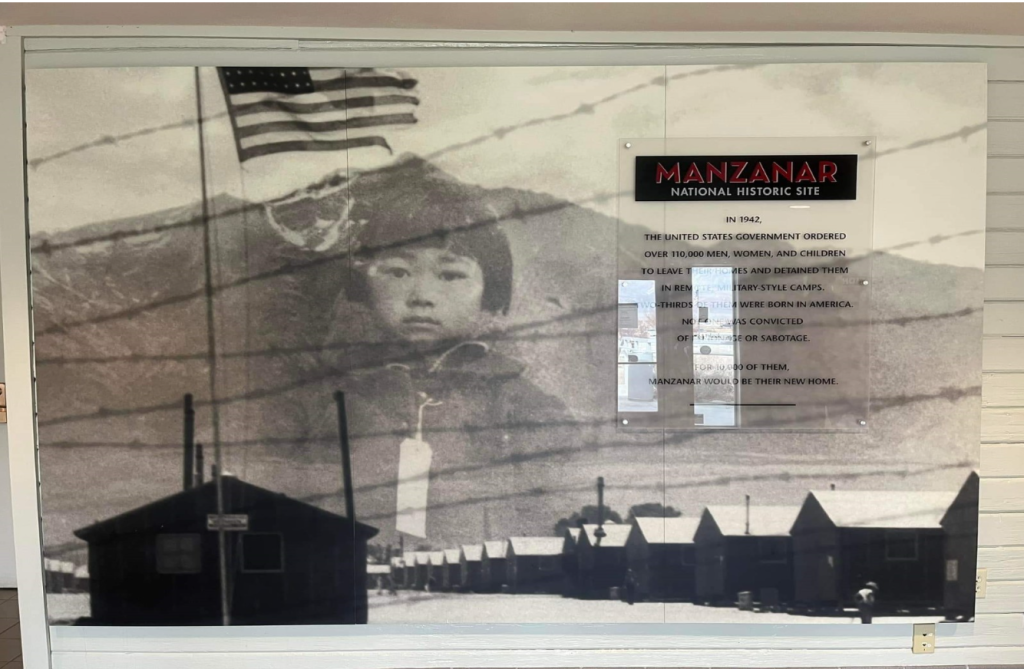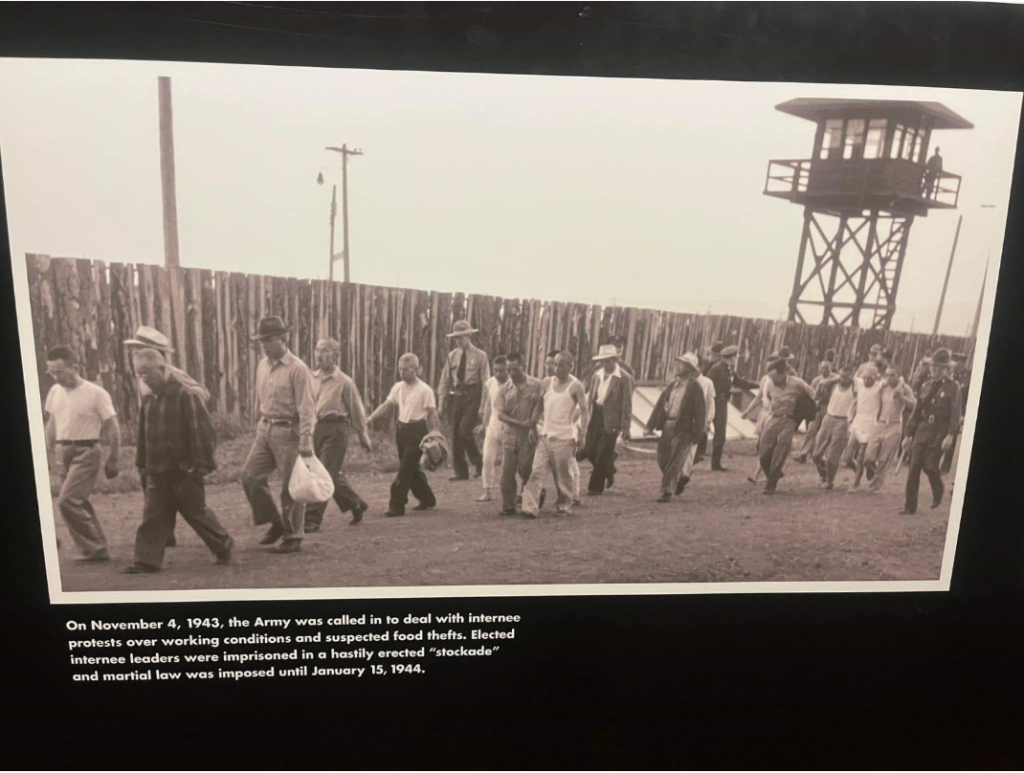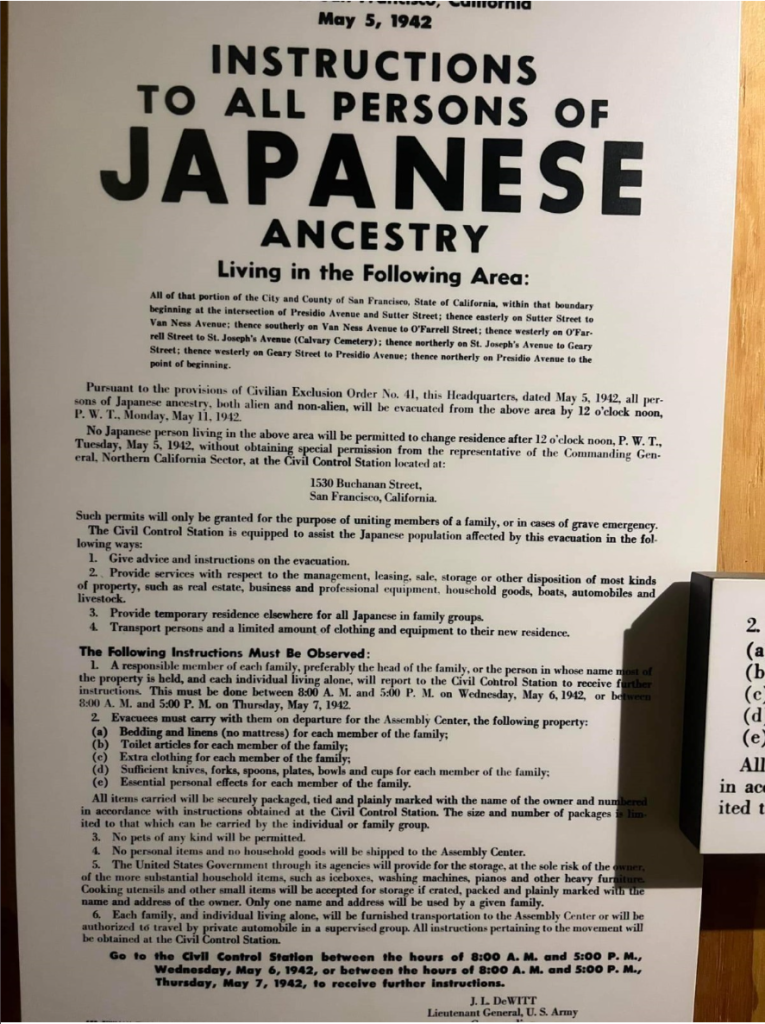- Home
- Blog
- April Issue, Blogs
REMEMBERING MANZANAR: A LEGACY OF RESILIENCE, REMEMBRANCE, AND REFLECTION FOR THE FUTURE
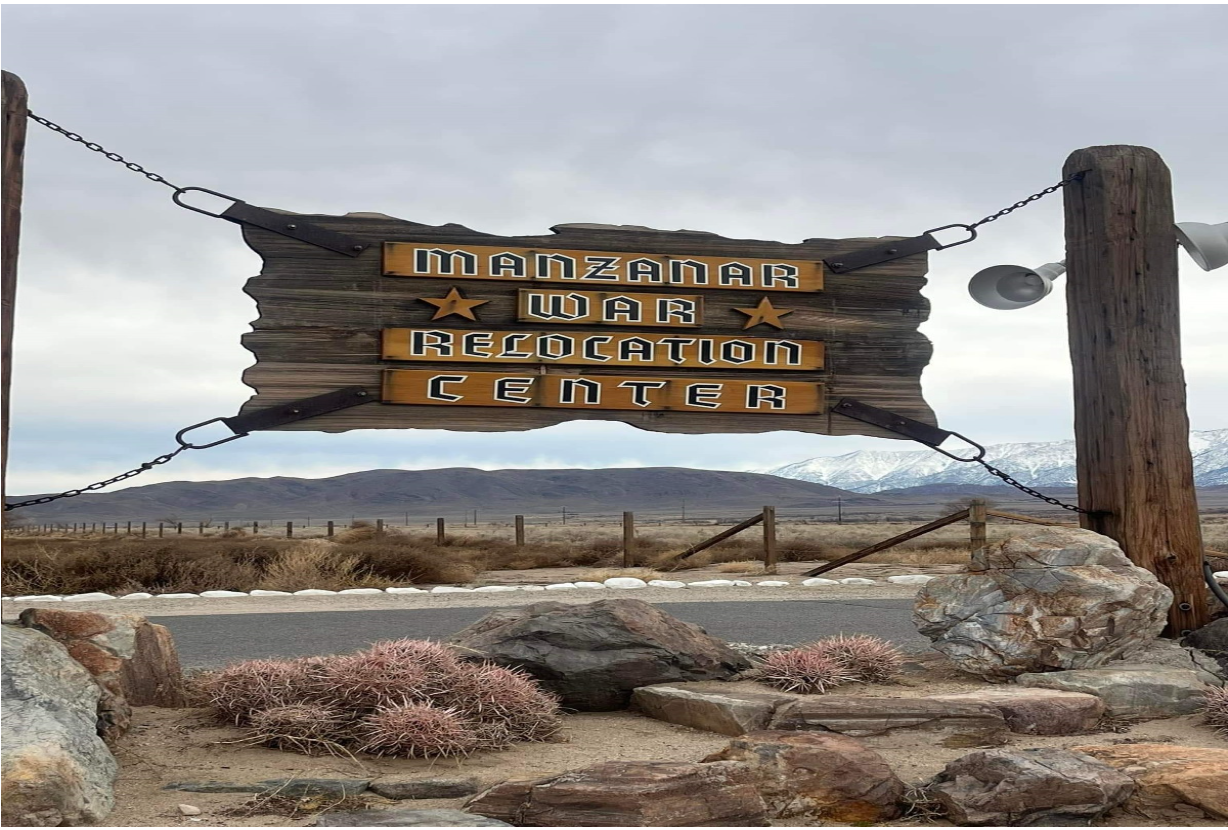
Hello readers and welcome to this month’s issue!! Today we step back in time to a place that embodies the true spirit of resilience in the face of struggles and uncertainty during a period in our nation’s history.
⚠️WARNING ⚠️
THIS ARTICLE WILL TRIGGER STRONG EMOTIONS FOR SOME OF YOU!
Ok, now we can proceed…located in the heart of the Owens Valley in California, the Manzanar War Relocation center stands as a stark reminder of a dark chapter in American history. Established during World War ii, Manzanar was one of ten internment camps where over 120,000 Japanese Americans were forcibly relocated and incarcerated by the us government. Today, the site serves as a poignant memorial to those who endured this injustice and a call to remember the importance of upholding civil liberties for all.
The history of Manzanar dates back to February 1942 when President Franklin D. Roosevelt signed executive order 9066, authorizing the relocation and internment of individuals of Japanese descent living on the west coast. Families were given only days to sell their belongings, close their businesses, and pack what they could carry before being transported to desolate camps like Manzanar. Surrounded by barbed wire and armed guards, the residents of Manzanar faced harsh living conditions, overcrowding, and limited freedoms for the duration of the war.
Despite these challenges, the people of Manzanar refused to be defined by their circumstances. They turned barren desert land into a community, building schools, hospitals, and churches. The resilience and spirit of the incarcerates shone through in the cultural and artistic activities they organized, from traditional Japanese tea ceremonies to plays and musical performances. Through these acts of creativity and community, the internees at Manzanar found moments of solace and resistance in the face of adversity.
One of the most enduring legacies of Manzanar is the power of remembrance and education. In 1992, the site was designated a national historic site, ensuring that the stories of those who lived there would not be forgotten. Today, visitors to Manzanar can explore replicas of the barracks, mess halls, and guard towers that once stood on the site, gaining a deeper understanding of the lived experiences of the incarcerates. The Manzanar national historic site serves as a place of reflection and learning, inviting visitors to confront the injustices of the past and consider their implications for the present and future.
Through exhibits, educational programs, and oral history projects, the Manzanar national historic site continues to amplify the voices of those who were silenced during their time at the camp. By sharing personal stories and firsthand accounts, the site honors the resilience and strength of the incarcerates and challenges visitors to reflect on issues of racism, prejudice, and civil liberties in their own lives. The lessons of Manzanar resonate beyond the confines of history, reminding us of the importance of standing up for justice and equality for all members of our society.
As we reflect on the legacy of Manzanar, it is crucial to consider how we can apply the lessons of the past to the present day. In a world where xenophobia, racism, and discrimination still exist, the stories of Manzanar serve as a potent reminder of the dangers of intolerance and injustice. By amplifying the voices of the marginalized and advocating for the rights of all individuals, we can work towards creating a more equitable and inclusive society for future generations.
The story of Manzanar is a testament to the enduring power of the human spirit in the face of adversity. Despite being unjustly incarcerated and stripped of their rights, the incarcerates at Manzanar found ways to preserve their dignity, culture, and community. Their legacy challenges us to confront the darker chapters of our history, to remember those who suffered injustices, and to strive towards a more just and compassionate future for all.
As we walk through the remnants of Manzanar, let us not only remember the past but also commit ourselves to building a world where the principles of equality, freedom, and respect for all are upheld. In honoring the stories of those who were once silenced, we ensure that the legacy of Manzanar lives on as a beacon of hope, resilience, and remembrance for generations to come.
In exploring the profound history of the Manzanar War Relocation Center, we are reminded of the critical importance of acknowledging our past to prevent the repetition of past mistakes driven by fears or biases toward other races or cultures, especially in times of conflict. The legacy of Manzanar serves as a powerful testimony to the consequences of such actions and the enduring resilience of those who were unjustly incarcerated during World War II.
As we delve into the story of Manzanar, it is essential to recognize the personal connections that tie us to this chapter of history.
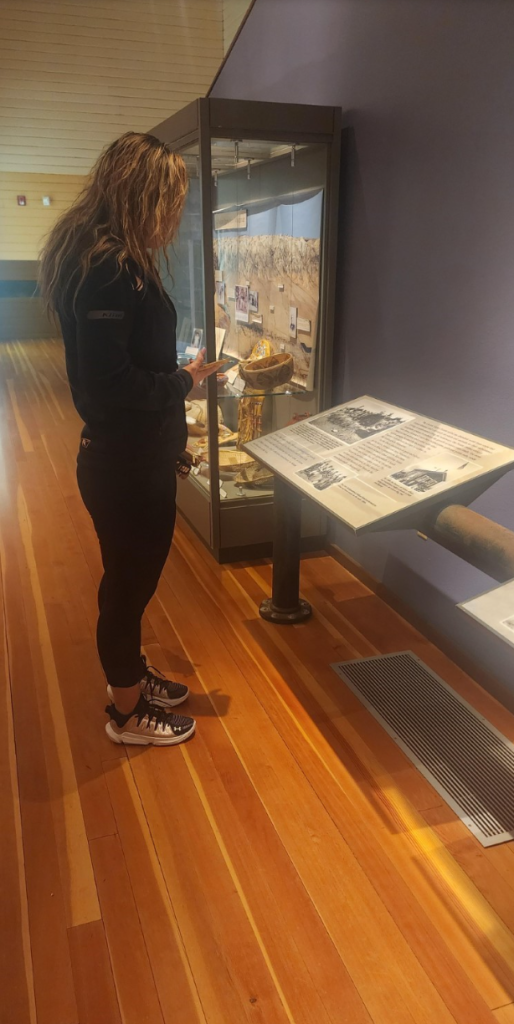
For Jolene, a descendant of individuals who were interned at Manzanar, the writing of this article was not only a means of sharing this important narrative with a wider audience but also an opportunity for personal reflection and understanding. Through exploring the experiences of her ancestors at Manzanar, Jolene sought to gain a deeper connection to her roots and to begin the process of healing long-standing wounds passed down through generations. Thank you, “J,” for allowing me the opportunity to share your story as well as walk with you on this journey of understanding, growth, and personal healing.
The story of Manzanar resonates not only as a cautionary tale from the past but also as a call to action in the present. The injustices and hardships faced by the incarcerates at Manzanar serve as a poignant reminder of the consequences of allowing prejudice and discrimination to dictate our actions. By learning from the mistakes of the past, we can strive to create a society that values diversity, equity, and justice for all individuals, regardless of their background or heritage.
Through the lens of Manzanar, we are compelled to confront the uncomfortable truths of our history and to consider how we can collectively work towards a more inclusive and compassionate future. By acknowledging the pain and suffering endured by those who were interned at Manzanar, we honor their resilience and strength in the face of adversity. We recognize the importance of amplifying marginalized voices and advocating for the rights of all individuals, standing up against racism, xenophobia, and injustice in our communities and beyond.
In sharing the stories of Manzanar, we also reaffirm our commitment to remembrance and education. The Manzanar National Historic Site stands as a living testament to the experiences of those who were once held within its confines, inviting visitors to engage with the history and legacy of this site. Through exhibits, educational programs, and ongoing initiatives, the site continues to serve as a beacon of remembrance and reflection, challenging us to confront the darker chapters of our past and to strive towards a more just and equitable future.
As we conclude our exploration of Manzanar, let us carry forward the lessons of resilience, remembrance, and reflection into our own lives. Let us be inspired by the strength and courage of those who endured hardship and injustice at Manzanar and let us commit ourselves to building a world where the mistakes of the past are not repeated. May the legacy of Manzanar serve as a reminder of the enduring power of the human spirit in the face of adversity and as a beacon of hope for a more inclusive and compassionate future for all.
In the spirit of honoring the memory of those who were unjustly incarcerated at Manzanar, may we strive to create a world where diversity is celebrated, equality is upheld, and justice is accessible to all. Let us remember the lessons of Manzanar as we navigate the complexities of our present reality and let us pledge to work towards a future where the mistakes of the past are acknowledged, learned from, and never repeated.
To view the history of Manzanar through my camera lens, click the link below.
Remembering Manzanar, A Legacy of Resilience: https://youtu.be/HaW9LxpkOtg
Until next issue, keep Riding Towards Adventure!
Photos
